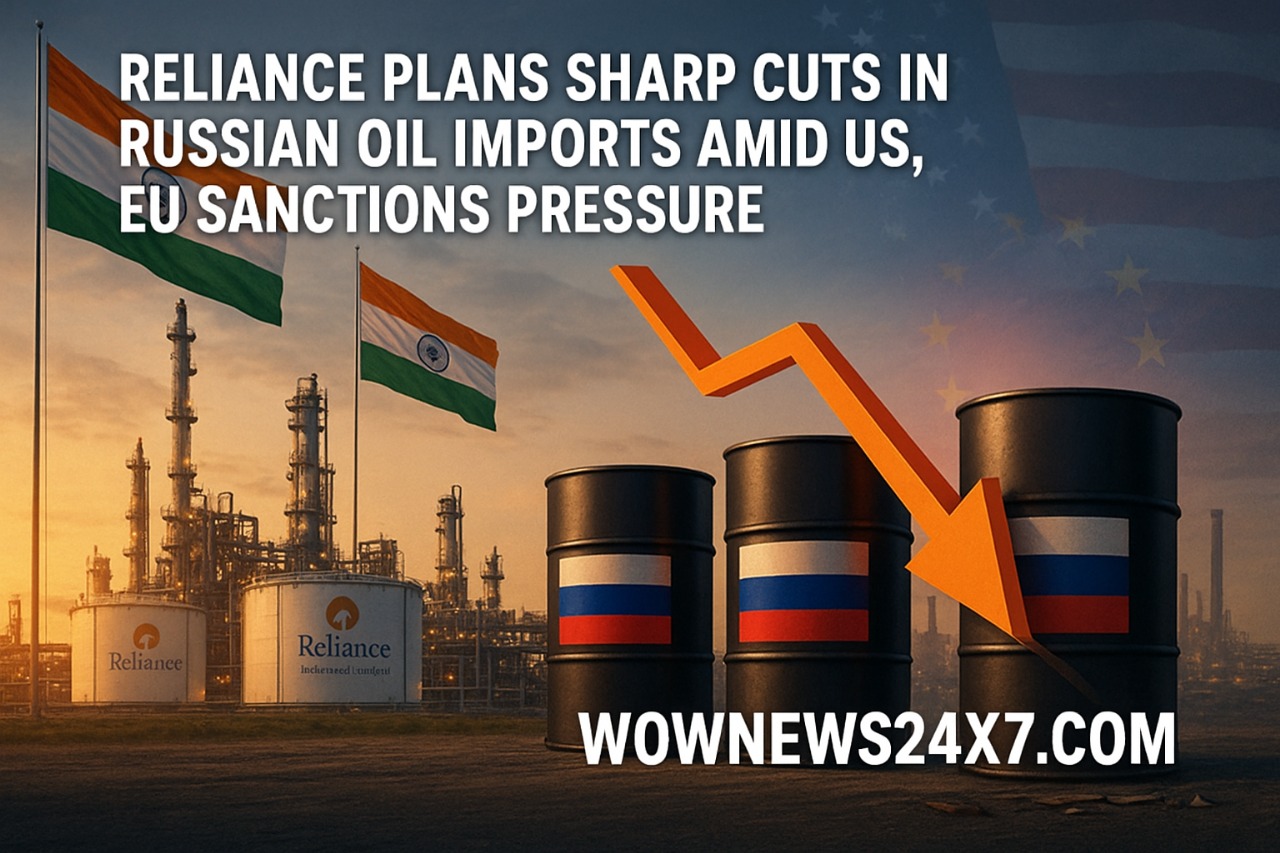Sources reveal that India’s Reliance Industries is preparing to drastically reduce purchases of Russian crude oil due to intensified US and EU sanctions. The move reflects a strategic pivot towards Middle Eastern oil sources, balancing geopolitical pressures while ensuring steady supply for India’s largest refining complex.
India’s Reliance Industries Limited (RIL), the country’s largest oil refiner and a key buyer of Russian crude, is gearing up to significantly curtail its Russian oil imports in response to mounting US and European Union sanctions targeting Moscow’s energy exports.
Trading sources familiar with the matter indicate Reliance has ramped up acquisition of Middle Eastern crude, including grades from Iraq’s Basrah, Qatar, and other Gulf producers, to compensate for expected reductions in Russian deliveries. This strategic shift aims at protecting the company from secondary US tariffs and aligning with evolving global trade dynamics.
US sanctions have escalated recently, with tariff rates doubling up to 50% on Indian imports due to the country’s continued reliance on Russian oil, which constituted over 35% of India’s crude consumption in the first half of 2025. The European Union’s fuel ban on Russian crude-derived products, effective January 21, also threatens Reliance’s export supply chains to Europe.
Though Indian refiners, including Reliance, are arranging alternative supply routes, refinery sources confirm daily Russian crude purchases will fall from an average of 1.8 million barrels a day to 1.4-1.6 million barrels. Reliance maintains flexibility via its terms with Russian producer Rosneft but plans greater dependence on OPEC+ Middle Eastern supplies and South American crudes.
Industry experts view this as a balancing act between geopolitical compliance and ensuring uninterrupted refinery operations. While India has not officially confirmed halting Russian imports, the shift is a clear nod to abiding by intensified global sanctions without jeopardizing energy security.
Notable Updates:
Reliance plans a deep cut in Russian crude imports, adjusting volumes to 1.4-1.6 million barrels per day from 1.8 million bpd.
Increased purchases of Middle Eastern crude, including Iraq’s Basrah and Qatar grades, are underway.
US sanctions include doubling tariffs on Indian goods due to continued Russian oil imports; effective tariffs can reach 50%.
EU ban on fuel products made from Russian crude, starting January 2026, impacts Reliance’s European refinery exports.
Indian refiners seek alternative sources from OPEC+ countries and Latin America to mitigate sanctions impact.
Reliance holds term contracts with Rosneft with volume flexibility, easing supply adjustments.
The shift aims to maintain refinery throughput and comply with international sanctions while ensuring energy security.
Major Takeaway:
Reliance’s strategic trimming of Russian oil imports amid heightened sanctions underscores India’s pragmatic approach to global geopolitical pressures, ensuring refinery operations remain robust with diversified crude sourcing, signaling a recalibrated energy diplomacy balancing economics and international relations.
Sources: Economic Times, Reuters, Bloomberg, LSEG, Business Standard.

